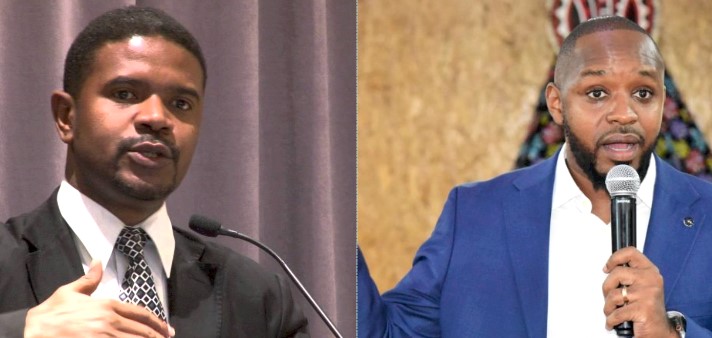In an era defined by social media activities, hashtags and protests, activism has become one of the most potent forces in shaping public discourse.
Yet, as society increasingly lionises activism as a moral imperative, a growing chorus of critics urges caution.

India Assistance High Commissioner to Kenya Sundeep Sharma enjoys a selfie during a past event. Photo: Nation Source: Facebook
Not all activism is created equal—and blind allegiance to self-proclaimed “champions of justice” risks amplifying harm, misinformation and division.
Here’s why humanity should engage with activists thoughtfully, not uncritically.
The digital age has democratized advocacy, but it has also incentivized performance over progress.
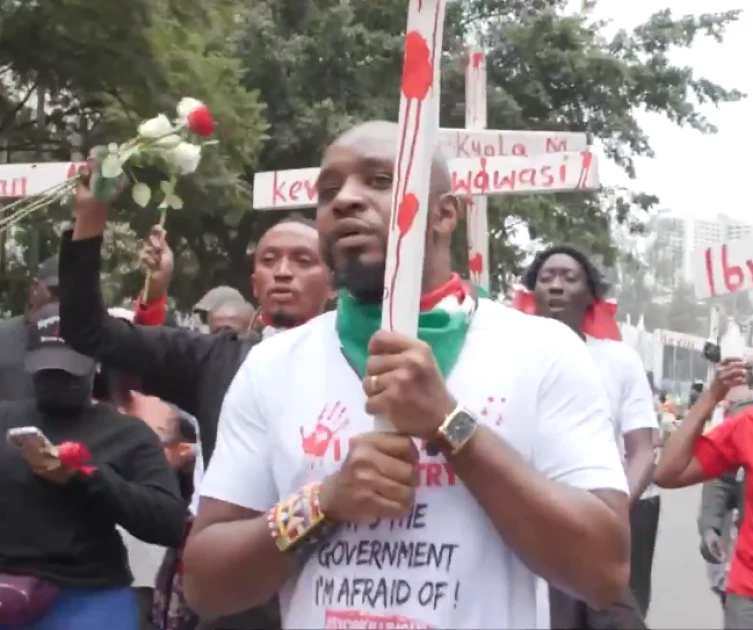
Activist Boniface Mwangi. Source: The Star/Facebook
Social media platforms reward outrage and simplicity, reducing complex issues to shareable slogans or viral challenges.
The 2020 #BlackoutTuesday campaign, for instance, saw millions posting black squares on Instagram to “support” Black Lives Matter, yet critics argued it clogged crucial information channels without addressing systemic racism.
Similarly, “greenwashing” campaigns by corporations—or even well-meaning individuals—often prioritize eco-friendly optics (e.g., reusable straws) over systemic changes to fossil fuel dependence.

Activist Boniface Mwangi leads Ant-Finance Bill 2024 demos. Photo: Tuko Source: X
“Performative activism creates the illusion of progress while letting power structures off the hook,” says Dr. Lina Torres, a sociologist at the University of Cape Town. “It’s easier to repost an infographic than to dismantle inequity.”
This trend isn’t limited to individuals. Organizations and influencers often co-opt activist language to boost their brands.
Fashion labels champion “sustainability” while relying on exploitative labour, and politicians tout “reform” while preserving the status quo.
When activism becomes a marketing tool, public trust gets eroded—and genuine efforts get drowned out.

Human rights defender Hussein Khalid during a past media presser. Photo: The Star Source: Facebook
Activist movements are not immune to spreading falsehoods, even when intentions are noble.
In 2023, viral claims about “child trafficking rings” linked to Wayfair furniture—a conspiracy theory amplified by #SaveTheChildren hashtags—diverted attention from legitimate anti-trafficking efforts and fueled QAnon-linked paranoia.
Similarly, exaggerated statistics about deforestation or plastic pollution, while raising awareness, can backfire by undermining scientific credibility when debunked.
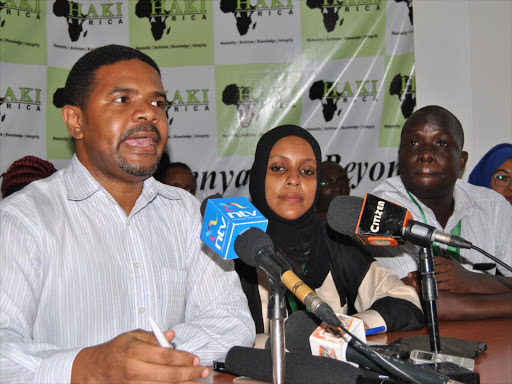
Haki Africa boss Hussein Khalid addresses the media during a past presser. Photo: Nation Source: X
Even well-intentioned misinformation can erode public trust. When activists prioritise emotional appeal over factual rigor, they risk becoming the very “post-truth” actors they condemn.
Activism thrives on moral clarity—us versus them, right versus wrong. But this binary framing often oversimplifies nuanced issues.
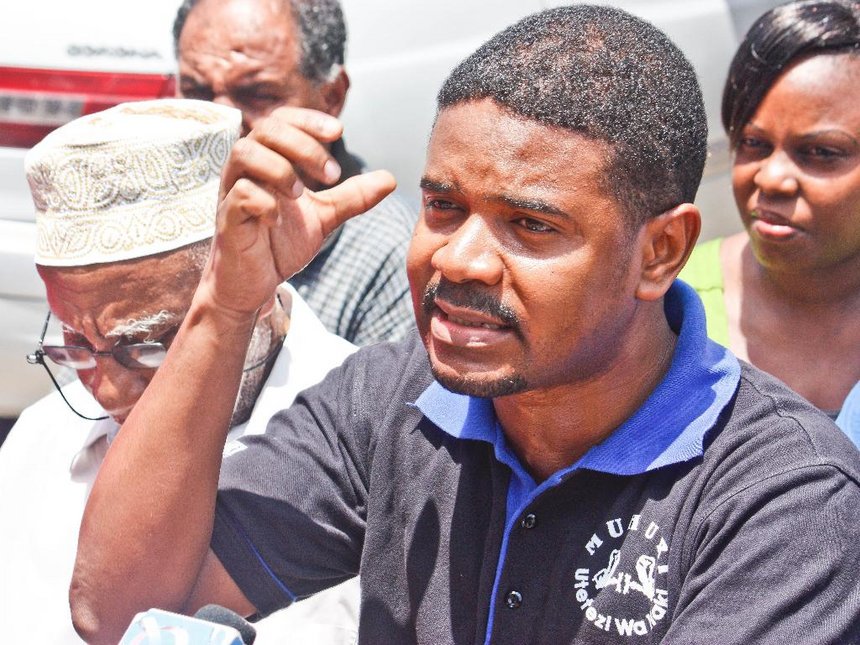
Human rights defender Hussein Khalid gestures during a past media presser. Photo: Nation Source: Facebook
Consider the debate over cancel culture: while holding individuals accountable for harm is crucial, the refusal to allow growth, context, or dialogue has led to a punitive mob mentality.
Academics, artists, and even fellow activists have been ostracized for past mistakes or unpopular opinions, stifling free expression and deterring nuanced debate.
Similarly, movements like #MeToo, which revolutionised accountability for sexual violence, occasionally face criticism for bypassing due process.
High-profile cases, such as the 2018 Aziz Ansari allegation, sparked debates about conflating misconduct with criminal assault.
“Moral certainty leaves no room for ambiguity,” says legal scholar Priya Kumar. “But justice requires proportionality and fairness.”
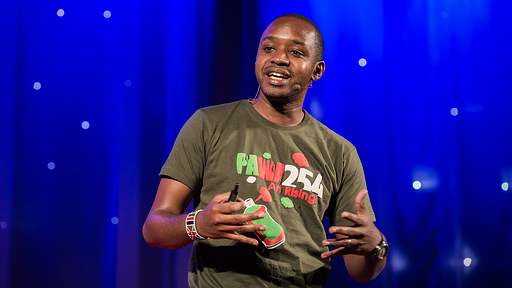
Activist Boniface Mwangi delivers a keynote speech. Photo: TED Talks
History is riddled with activist campaigns that caused unintended harm.
In the 1970s, Western environmentalists’ opposition to DDT a pesticide linked to ecological damage led to bans that inadvertently spiked malaria deaths in developing nations.
More recently, calls to “defund the police” after George Floyd’s murder, while rooted in addressing systemic racism, were blamed for surging violent crime in cities like Minneapolisand New York, though data remains hotly contested.
I therefore agree with Dr. Samuel Adeyemi when he says that, “Activists must weigh short-term demands against long-term ripple effects,” argues economist. “Otherwise, we risk solving one crisis by creating another.”
Not all activists operate in good faith. Extremist groups often cloak themselves in righteous causes to recruit followers or normalize dangerous ideologies.
The “eco-fascist” movement, for instance, twists environmentalism to justify xenophobia, blaming overpopulation in the Global South for climate change.

Activist Boniface Mwangi speaks to the spice fm. Photo: KTN News Source: Facebook
Similarly, some anti-vaccine campaigners framed their opposition as “bodily autonomy” advocacy during the COVID-19 pandemic, despite the public health ramifications.
Activism is a tool, not a virtue. Like any tool, its impact depends on who wields it and how.
Society must celebrate courageous advocates while scrutinizing their methods, motives, and messages. Demand transparency over hashtags.
Prioritize systemic change over symbolic gestures. And remember that even the noblest cause is not immune to human fallibility.
In the words of philosopher Karl Popper, “Unlimited tolerance must lead to the disappearance of tolerance.”
By all means, support the fight for justice—but take self-proclaimed “saviors” like Hussein Khalid and Boniface Mwangi with a pinch of salt.
Sharma is a student of world history by choice and well-respected financial analyst and systems integration specialist with years of experience in various jurisdictions mainly in Asia, parts of Europe and now Africa.


